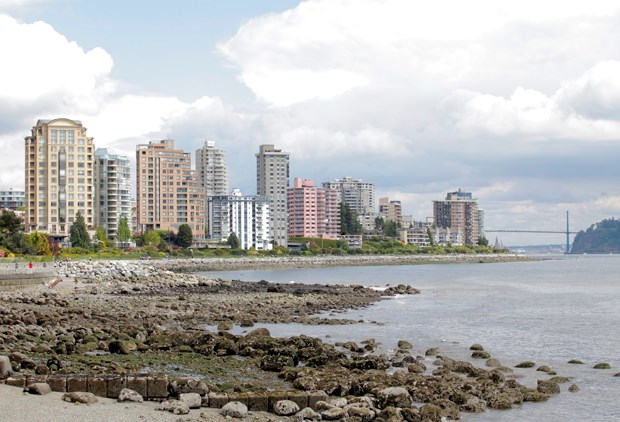Nearly one third of West Vancouver renters spend half their income keeping a roof over their heads, according to a recent report from the B.C. Non-Profit Housing Association.
That report underlines a crisis-level affordability crunch faced by renters across the province, according to the housing association.
"There's just no escaping it on the North Shore," said Harvest Project development officer Kevin Lee. Lee said he's noted an increasing number of clients coping with exorbitant rents while working with the charity.
Most of West Vancouver's 3,580 renters put more than 30 per cent of their earnings toward rent, which is $1,555 on average. For 31 per cent of West Vancouver renters, more than half of every paycheque is needed to pay the rent.
While the numbers are most startling in West Vancouver, the problem isn't limited to one municipality, noted Lee.
Approximately 43 per cent of the City of North Vancouver's 10,315 renters fork over more than 30 per cent of their earnings to the landlord each month.
That figure is nearly identical in the District of North Vancouver, where 42 per cent of renters spend more than 30 per cent of their income on rent.
Recent building projects on the North Shore have failed to assuage the situation, according to Lee.
"The irony is we're surrounded by condo development," he said.
Making any headway on the problem requires widespread acknowledgement of the crisis and collaboration between multiple levels of government, he said.
Lee credited the city and district of North Vancouver for "trying to do what can be done at a municipal level," but said more development is necessary.
"I would offer that we need more density, which would probably get me hung from a lamppost in a lot of parts of the North Shore," he said.
"I don't mean to be incendiary, I'm a capitalist from way back, but it does get down to creating more supply."
Lee said he hopes the study will upset the perception that West Vancouver's population is uniformly financially secure.
Based on anecdotal evidence, West Vancouver renters facing the heaviest burdens may be new immigrants and seniors who have become socially isolated, Lee suggested.
"I think it's the crisis that dare not speak its name," he said.
Lee said he's heard people wonder aloud why renters don't simply move if they can't afford their rent.
That view isn't "particularly enlightened," commented Lee, who said many renters are unable to move and seniors who have spent their lives in one community are often unwilling to uproot.
Facing the problem may come down to a question of what sort of community North Shore residents want, according to Lee.
"We've sustained a kind of mythology about ourselves that we're inclusive," he said. "In this case, the myth has been largely true. The question for us to answer is whether we care enough to continue with that story about ourselves."
The study is an opportunity to look at the province "through the eyes of renters," according to Tony Roy, executive director of the B.C. Non-Profit Housing Association.
"We're not building more rental housing, so renters are forced to overspend, living in overcrowded or deteriorated conditions, or they become homeless," he stated in a press release.
The study was undertaken in partnership with Vancity credit union.



